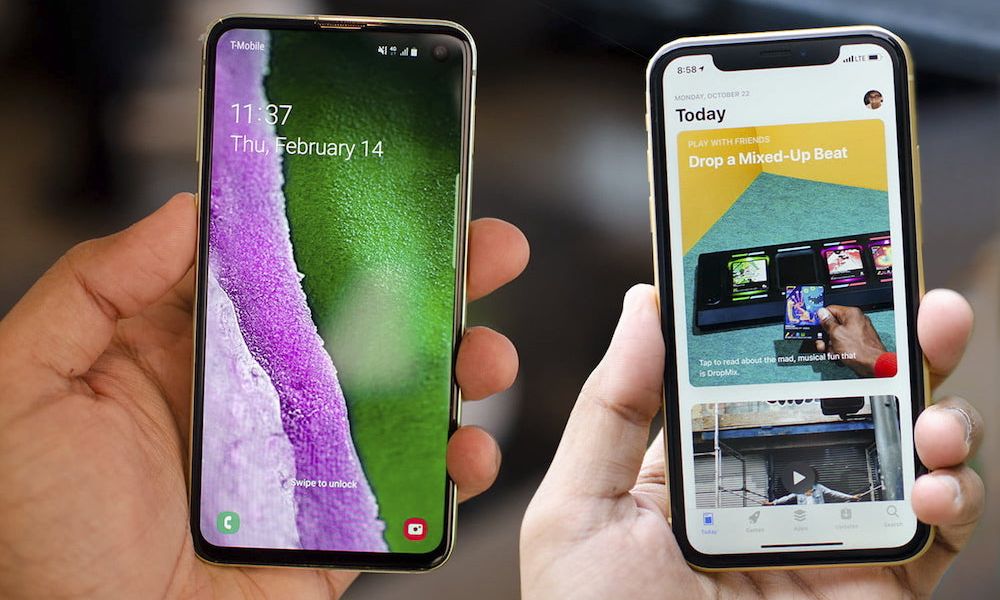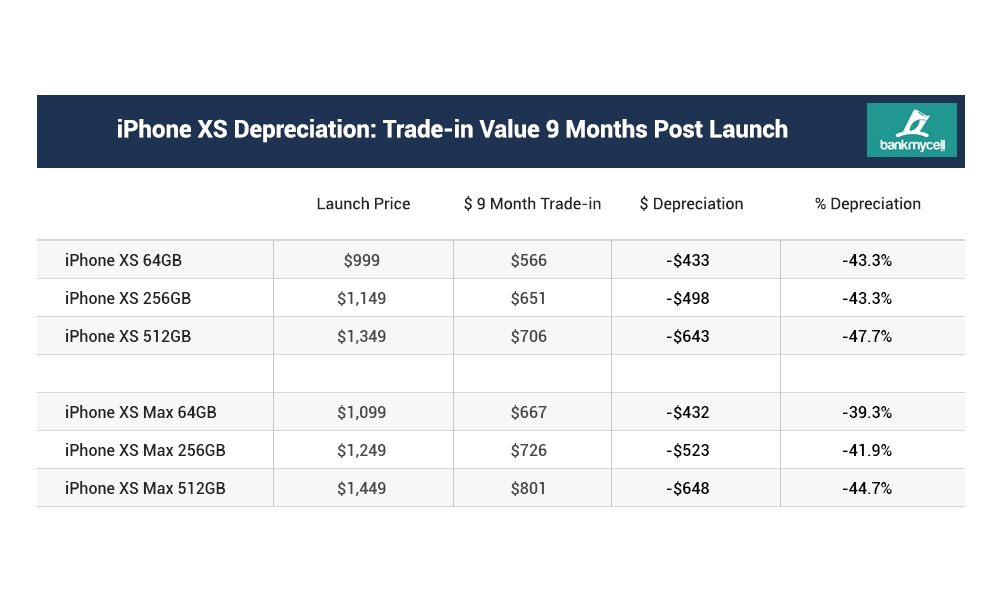iPhone XS vs. Galaxy S10: Which One Holds Its Value Better?
 Credit: Digital Trends
Credit: Digital Trends
Toggle Dark Mode
It’s long been known that while Apple’s hardware sells at premium prices, the company’s Macs, iPhones, and iPads also hold their value far longer than most of their competitors, both in terms of continuing usability and resale value. For example, when Apple releases iOS 13 this fall, it will still support devices that were released four years ago, and the upcoming macOS Catalina will support most Macs going back to 2012.
Now a new report by BankMyCell, a site that studies resale and trade-in values for a variety of gadgets, reveals just how great of an investment an iPhone can be compared to the competition.
In a head-to-head comparison of Apple’s 2018 iPhone models — both the XS series and the XR — against Samsung’s flagship Galaxy S10 lineup, the report determined that the popular Samsung phone lost more value in a single month after its release than Apple’s iPhone XS lost in nine months.
- Specifically, phones in the iPhone XS / XR range lost 42.40% of their original value on average nine months after their release.
- By comparison, the Samsung Galaxy S10 range lost 46.69% in the first month after their release.
The recent report is actually a follow-up to BankMyCell’s original 2018 smartphone depreciation report, which already tagged the Galaxy S9 as the fastest-depreciating smartphone on the market, losing value at twice the rate of Apple’s iPhone X, but now it looks like the depreciation values have gotten much worse all around, with the S10 beating the already horrible record of its predecessor.
However, although the value of the Samsung Galaxy S10 falls off a cliff compared to the iPhone, Apple’s newest iPhones haven’t escaped the changing smartphone market forces unscathed either, with the report noting that the iPhone XS has been falling 25% faster than the iPhone X did last year — a significant change that means in some cases the iPhone X may in fact have better resale/trade-in value.
To put that in perspective, the iPhone X lost an average of 30.93% in the nine months after its release (in all storage capacities), while the iPhone XS lost 44.78% in the same timeframe.
In terms of specific models, the 128 GB iPhone XR did the best, losing only 36.7% of its value in seven months, while the high-capacity 512 GB iPhone XS Max suffered the highest monetary loss in nine months, dropping $648 in resale/trade-in value, and the 512 GB model of its smaller sibling, the iPhone XS, showed the highest depreciation rate, at 47.7%.
The higher-capacity Samsung models showed a similar trend, although much sooner, with the Galaxy S10+ 1 TB model losing $850 of its value in a single month after its release.
What This Means
There are a couple of things we can take away from these numbers, beyond of course the obvious fact that Apple’s iPhones are much better investments than Samsung’s Galaxy models.
In practical terms this means you’re much more likely to be able to finance an iPhone upgrade by selling or trading in your old one than those who saddle themselves with Samsung’s higher-end phones.
The numbers however also show that highest-capacity smartphones in each line will have much poorer resale values. This means that unless you really need that 512 GB of storage, a lower-capacity model will be a better investment when it comes time to trade-up to a newer iPhone model.
Beyond storage capacities, however, it seems that all of Apple’s 2018 iPhones are roughly on par, and have fared worse than the 2017 iPhone X. Of course, the smartphone market is cooling off in general, which is probably the main reason for the lower resale values, along with the fact that the phones themselves are getting more expensive — there’s a much higher perch from which the prices can fall.
If the trend continues, however, it’s likely going to result in even iPhone users holding onto their old devices for longer, but at least those in the Apple ecosystem can be assured that they’ll be in a better position to do something with their old iPhone when the time does come to upgrade.







